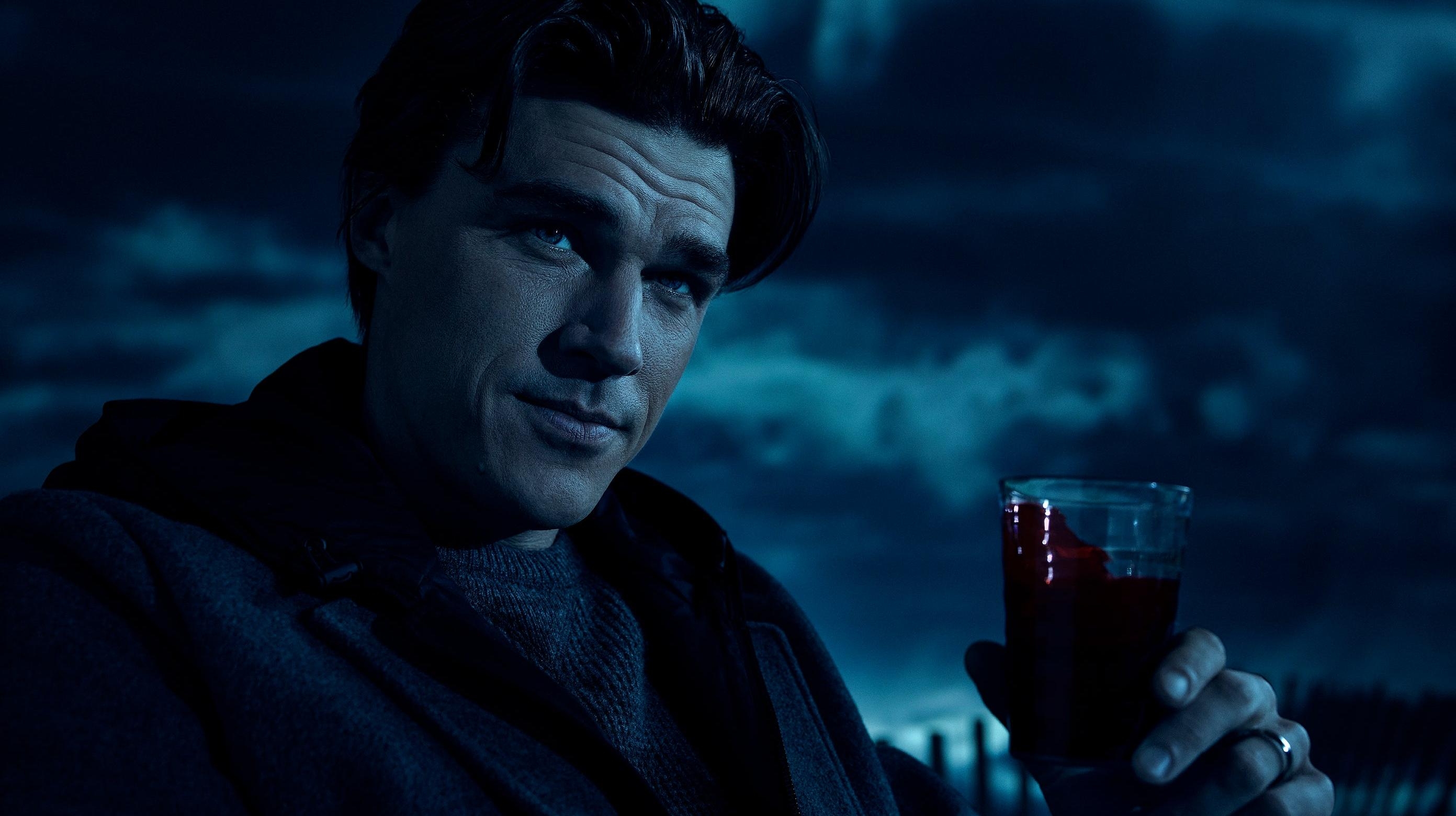Who expected American Horror Story to put the scariest spin on COVID-19?
Unlike most coronavirus-inspired films and TV shows, season 10 of Ryan Murphy and Brad Falchuk's anthology offers an affecting look at lockdown in a pandemic.


It’s hard to know what to expect with a new season of American Horror Story; for every magnificent moment from Asylum, there is a soul crushingly awful episode of Freak Show. That inconsistency was present in the recent American Horror Stories, which surrounded fun originality with self-referential tedium. Nonetheless, I was tentatively optimistic coming into “Red Tide,” the first half of this “Double Feature” season—the idea of AHS doing a quasi-adaptation of The Shining had the potential to box in Ryan Murphy’s abundance of ideas to create the same self-contained fun of American Horror Story: 1984.
Watching a young family—an unsuccessful writer, a pregnant interior designer, and a slightly creepy child who sees things no one else does—arrive at their creepy house, I prepared to be comforted by predictable Stephen King plot contrivances and addiction metaphors. That made it all the more surprising when it became apparent that American Horror Story had created a painfully effective depiction of the horrors of the pandemic lockdown.
Harry Gardener (Finn Wittrock), his wife Doris (Lily Rabe), and their aforementioned creepy child Alma (Kiera Armstrong) move into their new winter home on the Massachusetts coast. Harry has a pilot to write, Doris a refurb to complete, and Alma is being home-schooled, but that seems to be limited to endless violin practice. They settle into their spaces, each trying to carve out a little personal territory within which to work. It’s not long before the claustrophobia sets in—despite the large home they occupy, the spaces bleed into one and the walls close in, drawing them closer together. Alma’s violin plays on a loop, and her beloved father assures her he only wants her to stop because she’s so talented, it distracts him. Those scenes took me back a year with painful accuracy, keeping a façade as serene as possible, papering over deep annoyance, knowing that anything more will ruin everyone’s day and create conflict from which there is no escape.
AHS was sensible enough to not do a full pandemic-themed episode, but rather captured the resulting unease. The Gardeners are trapped together, and when they leave their home, potential horrors await. Doris and Alma are chased by a monstrous sharp-toothed man, Harry is berated by a sallow-skinned and blistered Sarah Paulson in the supermarket. Nowhere is safe but home, and the sad little restorative walks they permit themselves to buoy their spirits are as dangerous as they are woefully inadequate. Alcohol steps in, to delineate day from night, and food becomes weaponized against them, occupying so much time and energy but seeming all the more pointless and grotesque for it.
Working from home gets even worse the longer the Gardeners stay in Massachusetts. Without the rhythm and routine of going to and from an office, or interacting with anyone else, a light mania sets in. The complete unpredictability of their own productivity coupled with self-doubt affects all three of our isolated characters: Harry becomes incapable of typing a single word, Doris cannot make even the most arbitrary design choice, and Alma becomes preemptively convinced of her future failure to succeed. Each person feels increasingly paranoid about the others’ judgment, convinced their work looks ineffectual or absurd to them. At one point Alma snaps at Harry, yelling “My job is important too!,” before reminding him of a competition on Instagram she won, proving she’s not filling her days with a mere hobby. As the writer in my own lockdown house, Alma’s sad defense of herself cut to the core of every insecurity I had during that time, too afraid to go outside but equally afraid of how pathetic I must seem, emailing pitches and trying to think of synonyms for “good” while a deadly virus raged outside.
Those fears of being a fraud when your work is reduced to nothing but yourself in an empty room with a laptop is only made worse when you add “home-schooling” to the mix. Just by being in proximity to her parents’ working habits, Alma begins to mimic their dysfunction: the self-loathing and being overworked, eventually following her father into a Faustian pact to become a cursed vampiric creature in exchange for success. Not only did these pandemic-like conditions bring out the worst in Harry, but they hold his daughter to the worst possible parenting example.
The other characters only compound the worst memories of the pandemic. When called about the razor toothed creatures, the authority figures are totally incompetent, unable to keep the family safe or proffer any sensible advice. When Harry finally does make it out of the house into a restaurant, his social skills and those of others have withered on the vine. Conversations at a bar are stilted and unnerving, each person he meets either intimidates him or has a shocking lack of boundaries. Evan Peters’ character, the lauded playwright Austin Sommers, seems to embody the worst lockdown instincts—spending all day in luxurious pajamas and “[getting] drunk so often you can’t tell the difference between drunk and sober.” Mickey (Macaulay Culkin) and Tuberculosis Karen’s (Sarah Paulson) conversation mimics so many that I had at that time, quickly shifting between discussing the terrifying danger they are in, the projects they haven’t yet completed, and debating the true villain of the film Jaws.
It would be generous to describe the film and TV horror projects made in lockdown as a mixed bag. For all the brilliance of Host, there have been far more tedious missed opportunities in The Bite, Songbird, In The Earth and Demonic, to name but a few. Somehow (and this seems shocking to say about a Ryan Murphy property), these episodes of American Horror Story: Double Feature capture the pandemic horrors by showing restraint, a rarity for Murphy et al. Alongside the ripped throats and Frances Conroy beehives, there’s an eerie familiarity in a trip to a supermarket, where you are supposed to pick up groceries like the world isn’t ending. What looked at first as a diverting “Overlook Hotel by the sea” riff is actually much more interesting—a story that takes all the anxieties of the time it was made in and reflects them back at us.